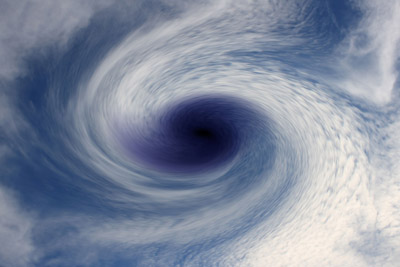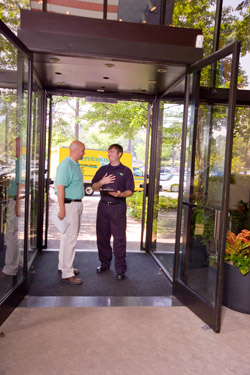 In the event of a disaster, advanced planning is key to protect you, your family, and your propery.
In the event of a disaster, advanced planning is key to protect you, your family, and your propery.
As June approaches, the start of the 2015 hurricane season is just around the corner. ServiceMaster Advanced Restorations is prepared to help any victims of the storm minimize water damage and get their lives back in order after the storm. Below, we have 12 helpful tips for hurricane preparation to help you and your family stay safe. For more helpful tips for handling extreme weather events, check out FEMA’s guide to understanding and preparing for hurricanes.
“Before a hurricane strikes, it’s important to carefully map out a response,” says Pete Duncanson, director of training and technical support for ServiceMaster Clean. “Because the amount of planning you do upfront is going to play a significant role in the post-storm clean-up.”
Disaster restoration experts and industry leaders at ServiceMaster Clean offer the following recommendations to prepare for a hurricane, tropical storm, or other extreme weather:
MAP OUT AN EVACUATION ROUTE
Secure a community hurricane preparedness plan through your local emergency management office or Red Cross chapter and make sure to fill your gas tanks, as you may have to travel long distances inland to find a hotel or shelter.
HAVE AN OUT-OF-STATE CONTACT
Identify an out-of-state relative or friend to serve as the official family contact, and be sure all family members have this person’s contact information.
IDENTIFY MEETING PLACES
In case family members are separated from one another during a disaster (for example, when adults are at work and children are at school), identify two places to meet: one right outside your home and another outside your neighborhood in case you cannot return home. Make sure everyone knows the address and phone number of your second meeting place.
HAVE A PLAN IN PLACE FOR YOUR PETS
Make a plan now for what to do with your pets if you need to evacuate. Understand that most shelters and hotels will not allow them on the property, so it is critical to determine early on where to house them during a pending storm. Photograph them and make sure they are wearing identification collars in case you lose them during the storm.
PROTECT VALUABLES FROM WATER DAMAGE
Photograph and/or video both the interior and exterior of your home for a record of all valuables. Make sure to store originals of important documents, including birth certificates, banking and credit card information and medical records in a waterproof container as well.
UTILIZE DIFFERENT FORMS OF COMMUNICATION
Purchase a battery-operated AM/FM radio and/or batter-operated television to keep updated on events. Since most telephones will be out of order when the storm hits, weather radio will be your best source of information. However, make sure your cell phone is fully charged and have a phone charger in the car in case land lines are out for an extended period.
STOCK EMERGENCY SUPPLIES
These items include the following:
- Three days worth of non-perishable, ready-to-eat canned food items and a manual can opener
- One gallon of water per person per day for three days
- First aid kit that includes pre-moistened antibacterial wipes and insect repellant
- List of medications and prescriptions for each member of the household
- Flashlights and plenty of fresh batteries
- Disposable flash camera to take pictures of post-storm damage to home and/or vehicles
- Pen and paper
- Extra blankets and clothing
- Alternate cooking source
- Special items for infant, elderly or disabled family members, including one-week supply of medications and foods for infants for those with special diets
- Crescent or pipe wrench to turn off gas and water
- One quart of unscented bleach or iodine tablets (for disinfecting water if ordered to do so by health officials) and an eyedropper (for adding bleach to water)
- Personal hygiene items such as soap, toothpaste and toothbrushes
- Fire extinguisher
PROTECT YOUR PROPERTY
Close and board up windows with 1/2 inch marine plywood and make sure to remove all outside antennas. Keep trees and shrubbery trimmed of dead wood and clear loose and clogged rain gutters and downspouts. You should keep extra plywood and plastic for repairs you may need to make after the storm. Be sure to hold onto all receipts to submit to your insurance company for reimbursement.
KNOW HOW TO SHUT OFF YOUR UTILITIES
In the event that electricity is lost, be sure to turn the main switches in the circuit breaker box to the off position. Make sure all household appliances are turned off, as no one may be home when power is restored. Appliances left on could cause a fire.
REVIEW AND UNDERSTAND INSURANCE COVERAGE
It is important to understand what deductibles in your policy are in place for hurricane damage. You will need to investigate flood insurance, as homeowners policies do not cover water damage that results from a hurricane. Check out the National Flood Insurance Program, which is designed to provide a means for property owners to financially protect themselves when catastrophe strikes.
For more information, check out the National Hurricane Center’s website at www.nhc.noaa.gov.
ServiceMaster Advanced Restorations is not only prepared to respond to disasters when Mother Nature strikes, but it is also ready to help when there’s a fire, water leak or other mechanical malfunction in your home or business. The company’s local service operations throughout the country are trained, equipped and ready to restore your property after any disaster, from water in the basement to fire and smoke damage in the lobby. The company will dry and clean everything form documents to carpet, to help you avoid mold problems later. And ServiceMaster Advanced Restorations handles jobs as large as your entire office building or as small as a single room in your home.
